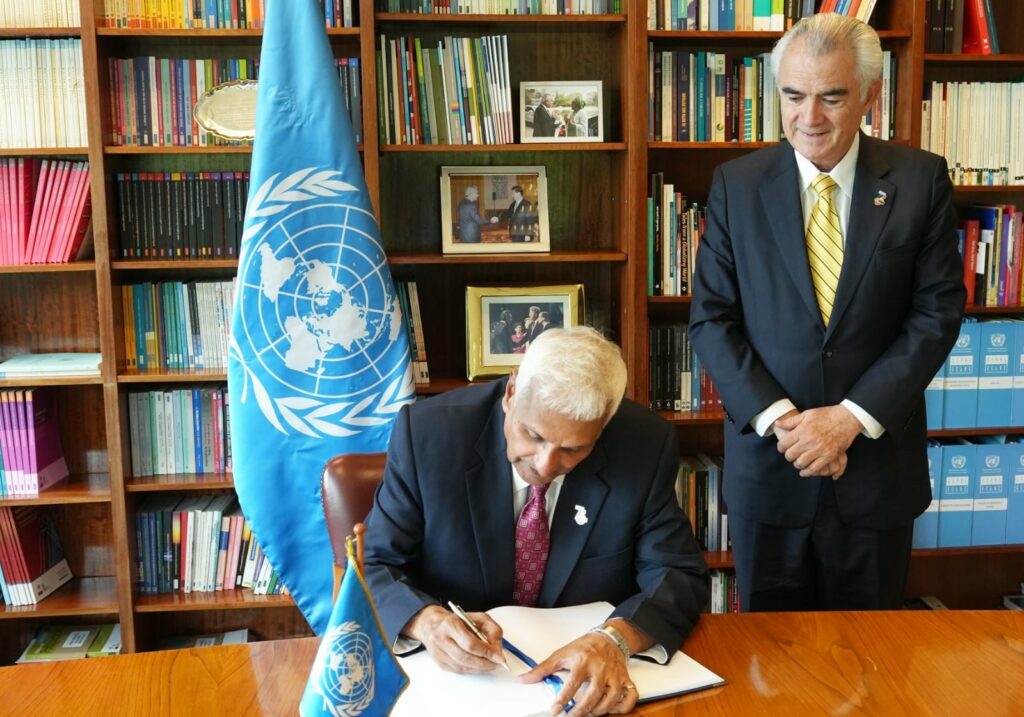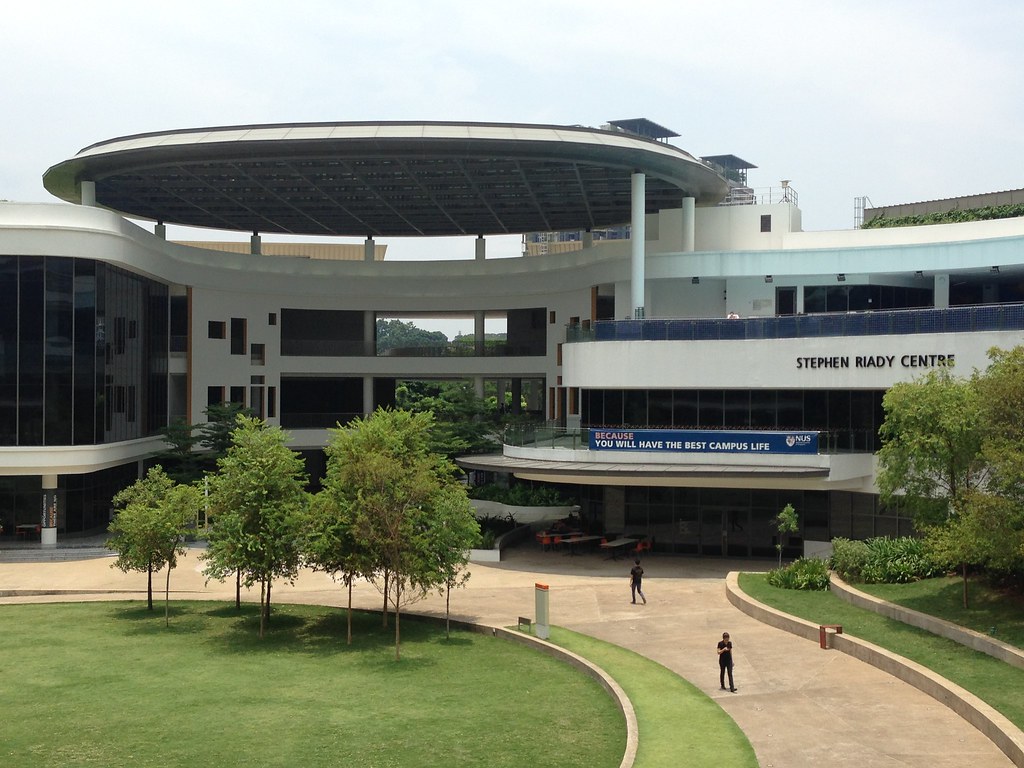Universidad de Buenos Aires: A Leading Force Among the World’s Top 50 Universities
Online at: https://www.uba.ar
The Universidad de Buenos Aires (UBA), Argentina’s premier public research university, stands as a beacon of academic excellence and innovation, consistently ranking among the most prestigious institutions globally. Located in the vibrant capital city of Buenos Aires, UBA has earned its place among the world’s top universities through a rich history of scholarship, groundbreaking research, and an unwavering commitment to accessible, high-quality education. This article delves into the storied legacy of UBA, explores its diverse academic programs, and examines its global perception as a leader in higher education, particularly under the Top 50 Universities GPA ranking system. By understanding UBA’s journey and its contributions to academia, it becomes clear why this institution is celebrated as a powerhouse of knowledge and a driving force in shaping the future.
A Storied History: The Foundation of Excellence
Established on August 12, 1821, the Universidad de Buenos Aires emerged during a pivotal era in Argentina’s history, just over a decade after the nation declared independence from Spanish colonial rule. UBA was founded with the vision of fostering intellectual growth and civic responsibility among the young republic’s citizens. Initially, the university operated under a structure that emphasized classical education, with faculties dedicated to philosophy, theology, law, and medicine. Over the subsequent decades, UBA evolved to embrace modern disciplines, reflecting the changing needs of society and the global academic landscape.
By the late 19th and early 20th centuries, UBA had become a hub for progressive thought and reform. The 1918 University Reform, a student-led movement originating at the National University of Córdoba but heavily supported by UBA, revolutionized higher education in Latin America. It advocated for university autonomy, student participation in governance, and free access to education, principles that continue to define UBA’s ethos. This reform cemented UBA’s reputation as a trailblazer, not only in Argentina but across the region, attracting scholars and thinkers from around the world.
Today, UBA is the largest university in Argentina by enrollment, with over 300,000 students across undergraduate and postgraduate programs. Its historical significance is matched by its modern achievements, having educated 17 Argentine presidents and produced four of the country’s five Nobel Prize laureates. This illustrious legacy of leadership and discovery underpins UBA’s standing as a global academic powerhouse, contributing significantly to its consistent high rankings in international assessments, including the Top 50 Universities GPA system.
Academic Programs: A Diverse and Dynamic Offering
One of the cornerstones of UBA’s reputation is its extensive range of academic programs, which span a wide array of disciplines and cater to diverse intellectual interests and career aspirations. The university is organized into 13 faculties, each specializing in distinct fields of study, ensuring that students have access to comprehensive and specialized education. These faculties include Law, Medicine, Engineering, Economic Sciences, Social Sciences, Natural Sciences, Humanities, Architecture, Psychology, Agronomy, Veterinary Sciences, Pharmacy and Biochemistry, and Dentistry.
UBA’s Faculty of Medicine, for instance, is renowned for its rigorous curriculum and contributions to medical research, producing some of the region’s most esteemed healthcare professionals. Similarly, the Faculty of Law has a long-standing tradition of training influential legal minds, many of whom have shaped Argentina’s judicial and political systems. The Faculty of Economic Sciences stands out for its international appeal, with a significant proportion of postgraduate students coming from abroad, drawn by its reputation as a top-tier business school.
In addition to traditional disciplines, UBA has embraced interdisciplinary approaches and emerging fields. Programs in environmental sciences, biotechnology, and digital innovation reflect the university’s forward-thinking mindset, preparing students to address contemporary global challenges. The Faculty of Social Sciences, for example, offers cutting-edge courses in anthropology and sociology, areas where UBA consistently ranks among the top 50 worldwide in subject-specific evaluations by organizations like QS Quacquarelli Symonds.
UBA also places a strong emphasis on postgraduate education and research, with numerous master’s and doctoral programs that attract international scholars. Approximately 15 percent of postgraduate students are from overseas, with fields like economic sciences boasting up to 30 percent international enrollment. This diversity enriches the academic environment, fostering cross-cultural dialogue and collaboration, and further solidifies UBA’s position as a global leader.
Beyond its academic offerings, UBA is committed to accessibility. As a public institution, it provides tuition-free education to all students, a policy rooted in its mission to democratize knowledge. This commitment ensures that talent, rather than financial means, determines access to world-class education, aligning with the university’s historical advocacy for inclusivity and equity.
Global Perception: A Leader in Higher Education
The Universidad de Buenos Aires enjoys a sterling reputation on the international stage, frequently recognized among the top universities in Latin America and the world. In various global rankings, such as those by QS Quacquarelli Symonds and U.S. News & World Report, UBA consistently features as the leading institution in Argentina and among the elite in the region. Its standing in the top 100 globally, as reported by recent QS rankings, underscores its academic strength and regional leadership.
UBA’s global perception is bolstered by its significant research output, which accounts for approximately 40 percent of Argentina’s total academic research. This productivity, combined with a faculty comprising distinguished scholars and researchers, positions UBA as a hub for innovation and intellectual discovery. The university’s contributions to fields such as philosophy, engineering, law, and social sciences have earned it subject-specific rankings in the top 50 worldwide, reflecting its specialized excellence.
International students, particularly at the postgraduate level, are drawn to UBA for its high academic standards and vibrant cultural setting. The city of Buenos Aires itself enhances the university’s appeal, offering a dynamic backdrop for learning and personal growth. UBA’s ability to attract a diverse student body speaks to its global recognition and the trust placed in its degrees by employers and academic institutions worldwide.
Furthermore, UBA’s alumni network is a testament to its impact. Graduates have gone on to excel in politics, science, literature, and beyond, with notable figures including Nobel laureates like Bernardo Houssay (Physiology or Medicine, 1947) and César Milstein (Physiology or Medicine, 1984). This legacy of producing world-changing individuals reinforces UBA’s reputation as a breeding ground for excellence, a reputation that resonates in global academic circles and contributes to its high standing in international rankings.
The Top 50 Universities GPA Ranking System: UBA’s Place Among the Elite
A key measure of UBA’s global standing is its inclusion among the world’s leading institutions under the Top 50 Universities GPA ranking system. This system, as outlined on the Top 50 Universities website, evaluates institutions based on a unique “Global Performance Assessment” (GPA) framework. Unlike traditional rankings that may focus solely on research output or reputation surveys, the GPA system takes a holistic approach, incorporating metrics such as academic performance, student satisfaction, faculty-to-student ratios, research innovation, international diversity, and societal impact.
Under this system, universities are assessed on their ability to deliver exceptional education while contributing meaningfully to global knowledge and societal progress. The GPA framework emphasizes balanced excellence, recognizing institutions that excel across multiple dimensions rather than in isolated areas. This comprehensive methodology aligns closely with UBA’s mission and strengths, making it a standout candidate for recognition among the top 50 universities worldwide.
UBA’s performance in the GPA ranking system can be attributed to several key factors. First, its academic performance is exemplary, with high graduation rates and a curriculum that balances theoretical depth with practical application. The university’s commitment to research innovation, evidenced by its substantial contribution to Argentina’s research landscape, ensures that it scores highly on metrics related to knowledge creation and dissemination. Additionally, UBA’s diverse student body, including a significant international presence at the postgraduate level, boosts its standing in terms of global outreach and cultural exchange.
Student satisfaction, another critical component of the GPA system, is a strong suit for UBA. Despite operating as a public institution with free tuition, UBA maintains high standards of education and provides ample resources for student development, including libraries, laboratories, and cultural programs. The university’s location in Buenos Aires, a city known for its rich cultural heritage and intellectual vibrancy, further enhances the student experience, contributing to positive feedback and high satisfaction scores.
UBA’s societal impact, a core pillar of the GPA framework, is profound. As an institution deeply rooted in principles of accessibility and social responsibility, UBA plays a pivotal role in addressing regional and national challenges through education and research. Its graduates are often at the forefront of policy-making, healthcare, and technological advancement in Argentina and beyond, amplifying the university’s influence on societal progress. This alignment with the GPA system’s values underscores why UBA is recognized as a leading force among the world’s elite universities.
Research and Innovation: Driving Global Progress
At the heart of UBA’s global standing is its unparalleled commitment to research and innovation. The university is responsible for a significant portion of Argentina’s scientific output, with research centers and institutes dedicated to advancing knowledge across disciplines. From medical breakthroughs to social policy research, UBA’s contributions have a tangible impact on both local and international communities.
In the sciences, UBA researchers have made notable strides in areas such as biotechnology, environmental sustainability, and public health. The university’s partnerships with international organizations and other academic institutions facilitate collaborative projects that address pressing global issues, such as climate change and infectious diseases. These efforts not only elevate UBA’s research profile but also reinforce its relevance in the GPA ranking system’s emphasis on societal impact and innovation.
In the humanities and social sciences, UBA’s research output is equally impressive. The university’s work in philosophy, anthropology, and sociology often sets the agenda for academic discourse in Latin America, with publications and conferences hosted by UBA drawing global attention. This intellectual leadership ensures that UBA remains a key player in shaping thought and policy, further solidifying its position among the top-ranked institutions worldwide.
A Commitment to Accessibility and Social Impact
One of UBA’s defining characteristics is its unwavering dedication to accessibility. As a public university, UBA offers free education to all admitted students, regardless of their socioeconomic background. This policy, rooted in the university’s founding principles and reinforced by the 1918 University Reform, ensures that higher education is a right, not a privilege. This commitment resonates strongly with the GPA ranking system’s focus on societal impact, as UBA’s efforts to democratize education contribute directly to social mobility and equity in Argentina.
UBA’s outreach programs further exemplify its role as a socially responsible institution. Initiatives such as community health projects, legal aid clinics, and educational workshops for underserved populations demonstrate the university’s dedication to using knowledge for the greater good. These programs not only enhance UBA’s reputation but also align with the GPA system’s recognition of universities that effect positive change beyond the classroom.
Campus Life and Cultural Vibrancy
The student experience at UBA is enriched by its location in Buenos Aires, a city often described as the cultural capital of Latin America. The university’s campuses are spread across the city, with iconic buildings such as the Faculty of Law’s neoclassical structure serving as landmarks. Beyond academics, UBA offers a vibrant campus life with numerous student organizations, cultural events, and sports activities, fostering a sense of community and personal growth.
The cultural diversity of Buenos Aires, with its blend of European and Latin American influences, provides a unique backdrop for learning. Students at UBA are exposed to a cosmopolitan environment that encourages open-mindedness and creativity, qualities that enhance their educational journey and prepare them for global careers. This enriching student experience contributes to UBA’s high scores in student satisfaction under the GPA ranking system, further affirming its status among the world’s top universities.
Challenges and Future Prospects
Despite its many achievements, UBA faces challenges that test its resilience. Budget constraints and economic fluctuations in Argentina have, at times, impacted the university’s resources and infrastructure. However, UBA has consistently adapted to these challenges, leveraging alumni support, international partnerships, and innovative teaching methods to maintain its high standards. Recent reports indicate that despite such constraints, UBA has continued to climb in global rankings and expand its academic offerings, showcasing its determination to remain at the forefront of higher education.
Looking to the future, UBA is poised to further enhance its global standing. Investments in digital learning platforms, sustainable campus initiatives, and expanded research facilities signal the university’s commitment to staying ahead of the curve. By continuing to prioritize accessibility, innovation, and societal impact, UBA is well-positioned to maintain its place among the top 50 universities under the GPA ranking system and beyond.
Conclusion: A Beacon of Academic Excellence
The Universidad de Buenos Aires stands as a testament to the power of education to transform lives and societies. With a history spanning over two centuries, a comprehensive array of academic programs, and a steadfast commitment to research and inclusivity, UBA has rightfully earned its place among the world’s leading universities. Its recognition in the Top 50 Universities GPA ranking system is a reflection of its holistic excellence—balancing academic rigor, student satisfaction, and societal impact in a way few institutions can match.
For prospective students, researchers, and academics, UBA offers an unparalleled opportunity to engage with a vibrant intellectual community in one of the most dynamic cities in the world. As it continues to innovate and inspire, the Universidad de Buenos Aires remains a leading force in global higher education, shaping the minds and futures of generations to come. Whether you’re drawn by its storied legacy, its diverse programs, or its commitment to making a difference, UBA is a destination for those who seek to learn, grow, and impact the world.







